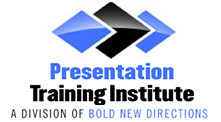Once you have finished your presentation you might feel a weight lifted off your shoulders, but the best presenters know that there is work to be done even after you step off the stage. It is important to collect as much feedback as possible from your audience so you can improve your presentation. Audience feedback is critical because it helps the presenter understand how their message has been received and interpreted. Only then, can you make adjustments to improve its effectiveness. Though it might not always be what you want to hear, ultimately that feedback is what is needed to help you grow and improve. Here are a few tips for making the most of audience feedback.
Gather Feedback from Multiple Sources
In order to make the necessary improvements to your presentation, you will want to gather as much feedback as possible. Collect feedback from multiple sources so you can look at it collectively to see what the audience found to be your strengths and weaknesses across the board. The more feedback you gather, the easier it will be to see if several people commented on the same thing or if it was an isolated opinion.
Ask for Immediate Feedback
It is always best to gather feedback as quickly as possible while the presentation is still fresh in everyone’s minds. You can do this by encouraging the audience to fill out a survey after the presentation, taking an online poll, or sending out an email right after the presentation has concluded. Timely feedback is crucial for making improvements.
Ask for Specifics
When you ask for audience feedback, demand specificity by asking probing questions like, “What did you like most? How did you feel about the opening and closing? How well did I illustrate each point?†Broad comments like “I liked your presentation†are not really going to help you improve your skills.
Don’t Take it Personally
One of the hardest things about receiving feedback is the tendency to get defensive. It’s important, however, to recognize that this feedback is intended to help you and not offend you. Generally, the negative feedback is what will be most effective even though it might sting a little when you first read it. In the end, you must remember that sincere feedback will only make you a better presenter.
Make Notes of Useful Feedback
As you sort through multiple comments, you will find that not all of the feedback is useful. Decide what is most important and useful to you and what you plan to incorporate. Make a note of each item you wish to improve so you can easily refer back to it and keep track of everything you want to correct. Once you have an idea of what needs to be corrected, choose one or two items at a time. Trying to do too much can be overwhelming so it’s best to prioritize each task.
